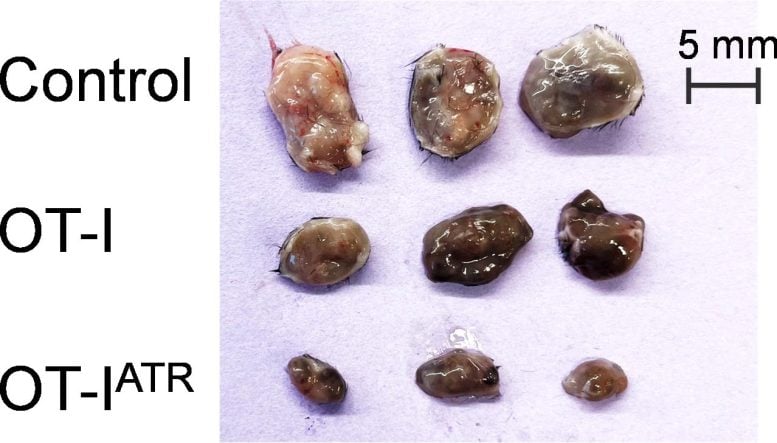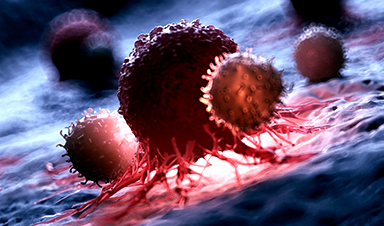Blocking a single protein boosts T cell metabolism and tumor-fighting strength. The discovery could lead to next-generation cancer immunotherapies.
Scientists have identified a strategy to greatly enhance the cancer-fighting abilities of the immune system's T cells. By inhibiting a protein known as Ant2, they succeeded in reshaping how these cells produce and use energy, effectively redesigning their internal power systems.
This adjustment makes T cells stronger, more durable, and more efficient at targeting tumors. The discovery opens new possibilities for therapies that reinforce the body's natural defenses, offering a more precise and effective form of cancer treatment.
International team leads breakthrough
A recent study suggests the potential for a new wave of cancer therapies that rely on training the immune system to perform more effectively. The work, led by PhD student Omri Yosef and Prof. Michael Berger at the Hebrew University Faculty of Medicine, brought together collaborators including Prof. Magdalena Huber of Philipps University of Marburg and Prof. Eyal Gottlieb of the University of Texas MD Anderson Cancer Center. Their findings show that carefully adjusting immune cell metabolism significantly boosts the cells' ability to destroy tumors.
Central to the research is a striking observation: when T cells—the immune system's front-line fighters—are compelled to change the way they generate and manage energy, they become far more adept at recognizing and eliminating cancer cells.

"By disabling Ant2, we triggered a complete shift in how T cells produce and use energy," explains Prof. Berger. "This reprogramming made them significantly better at recognizing and killing cancer cells." In simpler terms, blocking this protein forces the immune cells to adapt their metabolism, turning them into stronger, faster, and more aggressive cancer fighters.
Mitochondria as cellular engines
Published in Nature Communications, the study focuses on the mitochondria—the "metabolic hub" of cells. By deliberately disrupting a specific energy pathway inside T cells, the team essentially rewired the cells' engines, creating a state of heightened readiness and potency. The altered T cells exhibited greater stamina, faster replication, and sharper targeting of cancerous threats.
Perhaps most importantly, the researchers showed that this metabolic rewiring can be triggered not only through genetic modifications but also with drugs—opening the door for potential clinical applications.
This discovery is part of a growing movement in cancer immunotherapy that focuses not only on guiding the immune system but upgrading its inner machinery. While more studies and clinical trials are needed, the implications of this breakthrough are promising: new treatments that harness the body's own defenses, fine-tuned for peak performance.
"This work highlights how deeply interconnected metabolism and immunity truly are," says Prof. Berger. "By learning how to control the power source of our immune cells, we may be able to unlock therapies that are both more natural and more effective."
Reference: "Metabolic reprogramming driven by Ant2 deficiency augments T Cell function and anti-tumor immunity in mice" by Omri Yosef, Leonor Cohen-Daniel, Oded Shamriz, Zahala Bar-On, Wajeeh Salaymeh, Amijai Saragovi, Ifat Abramovich, Bella Agranovich, Veronika Lutz, Joseph Tam, Anna Permyakova, Eyal Gottlieb, Magdalena Huber and Michael Berger, 8 May 2025, Nature Communications.
DOI: 10.1038/s41467-025-59310-3
News
New Toothpaste Stops Gum Disease Without Harming Healthy Bacteria
Researchers have developed a targeted approach to combat periodontitis without disrupting the natural balance of the oral microbiome. The innovation could reshape how gum disease is treated while preserving beneficial bacteria. The human mouth [...]
Plastic Without End: Are We Polluting the Planet for Eternity?
The Kunming Montreal Global Biodiversity Framework calls for the elimination of plastic pollution by 2030. If that goal has been clearly set, why have meaningful measures that create real change still not been implemented? [...]
Scientists Rewire Natural Killer Cells To Attack Cancer Faster and Harder
Researchers tested new CAR designs in NK-92 cells and found the modified cells killed tumor cells more effectively, showing stronger anti-cancer activity. Researchers at the Ribeirão Preto Blood Center and the Center for Cell-Based [...]
New “Cellular” Target Could Transform How We Treat Alzheimer’s Disease
A new study from researchers highlights an unexpected player in Alzheimer’s disease: aging astrocytes. Senescent astrocytes have been identified as a major contributor to Alzheimer’s progression. The cells lose protective functions and fuel inflammation, particularly in [...]
Treating a Common Dental Infection… Effects That Extend Far Beyond the Mouth
Successful root canal treatment may help lower inflammation associated with heart disease and improve blood sugar and cholesterol levels. Treating an infected tooth with a successful root canal procedure may do more than relieve [...]
Microplastics found in prostate tumors in small study
In a new study, researchers found microplastics deep inside prostate cancer tumors, raising more questions about the role the ubiquitous pollutants play in public health. The findings — which come from a small study of 10 [...]
All blue-eyed people have this one thing in common
All Blue-Eyed People Have This One Thing In Common Blue Eyes Aren’t Random—Research Traces Them Back to One Prehistoric Human It sounds like a myth at first — something you’d hear in a folklore [...]
Scientists reveal how exercise protects the brain from Alzheimer’s
Researchers at UC San Francisco have identified a biological process that may explain why exercise sharpens thinking and memory. Their findings suggest that physical activity strengthens the brain's built in defense system, helping protect [...]
NanoMedical Brain/Cloud Interface – Explorations and Implications. A new book from Frank Boehm
New book from Frank Boehm, NanoappsMedical Inc Founder: This book explores the future hypothetical possibility that the cerebral cortex of the human brain might be seamlessly, safely, and securely connected with the Cloud via [...]
Deadly Pancreatic Cancer Found To “Wire Itself” Into the Body’s Nerves
A newly discovered link between pancreatic cancer and neural signaling reveals a promising drug target that slows tumor growth by blocking glutamate uptake. Pancreatic cancer is among the most deadly cancers, and scientists are [...]
This Simple Brain Exercise May Protect Against Dementia for 20 Years
A long-running study following thousands of older adults suggests that a relatively brief period of targeted brain training may have effects that last decades. Starting in the late 1990s, close to 3,000 older adults [...]
Scientists Crack a 50-Year Tissue Mystery With Major Cancer Implications
Researchers have resolved a 50-year-old scientific mystery by identifying the molecular mechanism that allows tissues to regenerate after severe damage. The discovery could help guide future treatments aimed at reducing the risk of cancer [...]
This New Blood Test Can Detect Cancer Before Tumors Appear
A new CRISPR-powered light sensor can detect the faintest whispers of cancer in a single drop of blood. Scientists have created an advanced light-based sensor capable of identifying extremely small amounts of cancer biomarkers [...]
Blindness Breakthrough? This Snail Regrows Eyes in 30 Days
A snail that regrows its eyes may hold the genetic clues to restoring human sight. Human eyes are intricate organs that cannot regrow once damaged. Surprisingly, they share key structural features with the eyes [...]
This Is Why the Same Virus Hits People So Differently
Scientists have mapped how genetics and life experiences leave lasting epigenetic marks on immune cells. The discovery helps explain why people respond so differently to the same infections and could lead to more personalized [...]
Rejuvenating neurons restores learning and memory in mice
EPFL scientists report that briefly switching on three “reprogramming” genes in a small set of memory-trace neurons restored memory in aged mice and in mouse models of Alzheimer’s disease to level of healthy young [...]





















